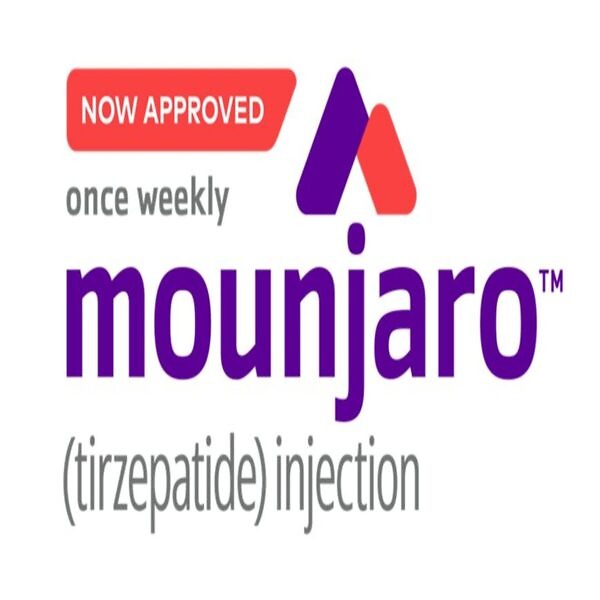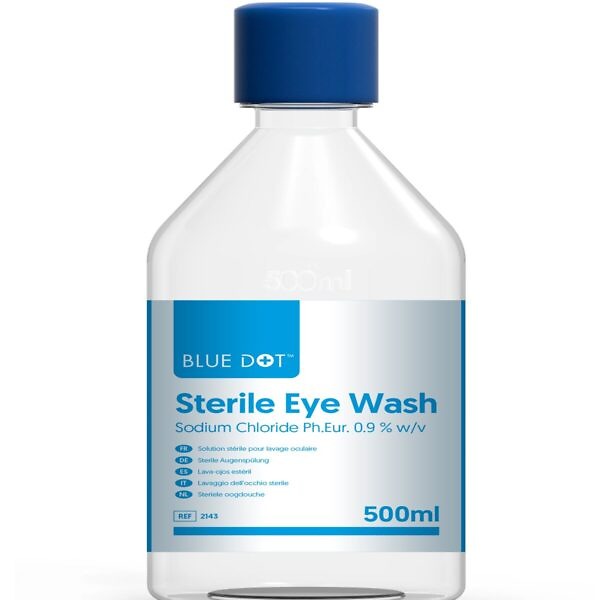Moxifloxacin Tablets 400mg, 5 Tablets
Original price was: £16.50.£11.50Current price is: £11.50.
CompareCompare- Description
- Additional Information
- Brand
- How To Use
- Product Details
- Side Effects
- Ingredients
- How to Store
- Patient Information leaflet
- Reviews (0)
- Questions & Answers
Moxifloxacin Tablets 400mg, 5 Tablets
Introducing Moxifloxacin Tablets 400mg, a powerful antibiotic now available in our online pharmacy, designed to combat a wide range of bacterial infections. Each tablet is formulated to deliver a potent dose of Moxifloxacin, a broad-spectrum antibiotic that targets various bacteria responsible for respiratory tract infections, skin infections, and more. This medication offers a convenient once-daily dosing, making it easier for patients to follow their treatment regimen. Packaged in a practical blister pack of 5 tablets, Moxifloxacin 400mg is your trusted ally in the fight against bacterial infections, ensuring a quick and effective treatment course.
Product Benefits
- Broad-Spectrum Antibiotic: Effectively treats a wide range of bacterial infections, including respiratory and skin infections.
- Convenient Dosing: Just one tablet a day is needed, simplifying your medication routine.
- Fast-Acting Relief: Begins working quickly to combat bacteria, reducing symptoms and promoting faster recovery.
- Highly Effective: Moxifloxacin has a high success rate in treating infections where other antibiotics may fail.
- Safe and Reliable: When used as directed, Moxifloxacin offers a safe treatment option with a profile suited for a broad patient base.
Moxifloxacin Tablets 400mg Reviews
After using Moxifloxacin Tablets 400mg, it’s helpful to let others know about your experience. Reviews of an item help other users know that medicines received have helped the condition it is claimed for, how well the treatment worked or any issues to be aware of. We invite our users to leave a review of both their treatment and of the service provided. Click on the reviews tab to see if there has been feedback on this item.
What is the price of Moxifloxacin Tablets 400mg?
The price of Moxifloxacin Tablets 400mg is £11.50
Where can you buy Moxifloxacin Tablets 400mg?
You can buy Moxifloxacin Tablets 400mg at Dock Pharmacy Essex UK, UK Online Pharmacy.
Can you buy Moxifloxacin Tablets 400mg Over the counter?
Moxifloxacin Tablets 400mg is not available to buy over the counter. You need a prescription to buy Moxifloxacin Tablets 400mg from Dock pharmacy. You can find more information about how to obtain the medication here:
Disclaimer: This product description is provided for informational purposes only. It is not a substitute for professional medical advice, diagnosis, or treatment. Always seek the advice of your physician or other qualified health provider with any questions you may have regarding a medical condition
Dock Pharmacy
128 Dock Road, Tilbury, Essex, RM18 7BJ
Tel: 01375846316
| Brand |
|---|
Brand
Avelox
How To Use
How to take Moxifloxacin
Always take this medicine exactly as your doctor or pharmacist has told you. Check with your doctor or pharmacist if you are not sure. The recommended dose for adults is one 400 mg film-coated tablet once daily. Moxifloxacin are for oral use. Swallow the tablet whole (to mask the bitter taste) and with plenty of liquid. You can take Moxifloxacin with or without food. Try to take the tablet at approximately the same time each day.
Product Details
What you need to know before you take Moxifloxacin
Contact your doctor if you are not sure if you belong to a patient group described below. Do not take Moxifloxacin · If you are allergic to the active substance moxifloxacin, any other quinolone antibiotics or any of the other ingredients of this medicine (listed in section 6.). · If you are pregnant or are breast-feeding. · If you are under 18 years of age. · If you have previously had problems with your tendons related to treatment with quinolone antibiotics (see Warnings and Precautions/Possible side effects). · If you were born with or have – any condition with abnormal heart rhythm (seen on ECG, electrical recording of the heart) – a salt imbalance in the blood (especially low levels of potassium or magnesium in the blood) – a very slow heart rhythm (called ‘bradycardia’) – a weak heart (heart failure) – a history of abnormal heart rhythms (arrhythmias) or – if you are taking other medicines that result in certain ECG changes (see section “Other medicines and Moxifloxacin”). This is because Moxifloxacin can cause changes on the ECG, that is a prolongation of the QT interval, i.e., delayed conduction of electrical signals. · If you have a severe liver disease or increased liver enzymes (transaminases) higher than 5 times the upper normal limit Warnings and precautions Before taking this medicine You should not take fluoroquinolone/quinolone antibacterial medicines, including Moxifloxacin, if you have experienced any serious adverse reaction in the past when taking a quinolone or fluoroquinolone. In this situation, you should inform your doctor as soon as possible. Talk to your doctor before taking Moxifloxacin – Moxifloxacin can change your heart’s ECG, especially if you are female, or if you are elderly. If you are currently taking any medicine that decreases your blood potassium levels, consult your doctor before taking Moxifloxacin (see also sections Do not take and Other medicines and Moxifloxacin). – If you suffer from epilepsy or a condition which makes you likely to have convulsions talk to your doctor before taking Moxifloxacin. – If you have or have ever had any mental health problems, consult your doctor before taking Moxifloxacin. – If you suffer from myasthenia gravis (abnormal muscle fatigue leading to weakness and in serious cases paralysis), taking Moxifloxacin may worsen the symptoms of your disease. If you think you are affected consult your doctor immediately. – If you or any member of your family have glucose-6-phosphate dehydrogenase deficiency (a rare hereditary disease), tell your doctor, who will advise whether Moxifloxacin is suitable for you. – If you have a complicated infection of the female upper genital tract (e.g. associated with an abscess of the fallopian tubes and ovaries or of the pelvis), for which your doctor considers an intravenous treatment necessary, treatment with Moxifloxacin is not appropriate. – For the treatment of mild to moderate infections of the female upper genital tract your doctor should prescribe another antibiotic in addition to Moxifloxacin. If there is no improvement in symptoms after 3 days of treatment, please consult your doctor. – If you have been diagnosed with an enlargement or “bulge” of a large blood vessel (aortic aneurysm or large vessel peripheral aneurysm). – If you have experienced a previous episode of aortic dissection (a tear in the aorta wall). – if you have been diagnosed with leaking heart valves (heart valve regurgitation). – If you have a family history of aortic aneurysm or aortic dissection or congenital heart valve disease, or other risk factors or predisposing conditions (e.g. connective tissue disorders such as Marfan syndrome or Ehlers-Danlos syndrome, Turner syndrome, Sjögren’s syndrome [an inflammatory autoimmune disease], or vascular disorders such as Takayasu arteritis, giant cell arteritis, Behcet’s disease, high blood pressure, or known atherosclerosis, rheumatoid arthritis [a disease of the joints] or endocarditis [an infection of the heart]). – If you are diabetic because you may experience a risk of change in blood sugar levels with moxifloxacin. – If you have ever developed a severe skin rash or skin peeling, blistering and/or mouth sores after taking moxifloxacin. When taking Moxifloxacin Serious skin reactions Serious skin reactions including Stevens-Johnson syndrome, toxic epidermal necrolysis, and acute generalised exanthematous pustulosis (AGEP) have been reported with the use of moxifloxacin. · SJS/TEN can appear initially as reddish target-like spots or circular patches often with central blisters on the trunk. Also, ulcers of mouth, throat, nose, genitals and eyes (red and swollen eyes) can occur. These serious skin rashes are often preceded by fever and/or flu-like symptoms. The rashes may progress to widespread peeling of the skin and life-threatening complications or be fatal. · AGEP appears at the initiation of treatment as a red, scaly widespread rash with bumps under the skin and blisters accompanied by fever. The most common location: mainly localized on the skin folds, trunk, and upper extremities. If you develop a serious rash or another of these skin symptoms, stop taking moxifloxacin and contact your doctor or seek medical attention immediately. Prolonged, disabling and potentially irreversible serious side effects Fluoroquinolone/quinolone antibacterial medicines, including Moxifloxacin, have been associated with rare but serious side effects, some of them being long-lasting (continuing for months or years), disabling or potentially irreversible. This includes tendon, muscle and joint pain of the upper and lower limbs, difficulty in walking, abnormal sensations such as pins and needles, tingling, tickling, numbness or burning (paraesthesia), sensory disorders including impairment of vision, taste and smell, and hearing, mental health effects which may include, but are not necessarily limited to, anxiety, panic attacks, confusion, or depression,memory impairment, severe fatigue and severe sleep disorders, There are no medicines that have been established as being effective treatments for the symptoms of long lasting or disabling side effects associated with fluoroquinolones. If you experience any of these side effects after taking Moxifloxacin, then do not take any further doses and contact your doctor immediately. You and your doctor will decide on whether to continue treatment, considering alternative options. · You may experience psychiatric reactions when taking moxifloxacin, including when taking it for the first time. If you suffer from depression or psychosis, your symptoms may become worse under treatment with moxifloxacin. In rare cases, depression or psychosis can progress to thoughts of suicide or suicide attempts. If this happens, stop taking moxifloxacin and contact your doctor immediately. You may not notice some changes in your mood and behaviour so it is very important to tell your friends and family that you are taking moxifloxacin, and that there may be rare psychiatric side effects. Others may notice changes and help you quickly identify any symptoms that you need to talk to your doctor about. · If you experience palpitations or irregular heart beat during the period of treatment, you should inform your doctor immediately. He/she may wish to perform an ECG to measure your heart rhythm. · The risk of heart problems may increase with increase of the dose. Therefore, the recommended dosage should be followed. · There is a rare chance that you may experience a severe, sudden allergic reaction (an anaphylactic reaction/shock) even with the first dose. Symptoms include tightness in the chest, feeling dizzy, feeling sick or faint, or dizziness when standing up. If so, stop taking Moxifloxacin and seek medical advice immediately. · Moxifloxacin may cause a rapid and severe inflammation of the liver which could lead to lifethreatening liver failure (including fatal cases, see section 4. Possible side effects). If you suddenly feel unwell and/or are being sick and also have yellowing of the whites of the eyes, dark urine, itching of the skin, a tendency to bleed or liver induced disease of the brain (symptoms of a reduced liver function or a rapid and severe inflammation of the liver) please contact your doctor before taking any more tablets. · Quinolone antibiotics, including Moxifloxacin, may cause convulsions. If this happens, stop taking Moxifloxacin and contact your doctor immediately. · You may rarely experience symptoms of nerve damage (neuropathy) such as pain, burning, tingling, numbness and/or weakness especially in the feet and legs or hands and arms. If this happens, stop taking Moxifloxacin and inform your doctor immediately in order to prevent the development of potentially irreversible condition. · You may develop diarrhoea whilst or after taking antibiotics including Moxifloxacin. If this becomes severe or persistent or you notice that your stool contains blood or mucus you should stop taking Moxifloxacin immediately and consult your doctor. You should not take medicines that stop or slow down bowel movement. · Pain and swelling in the joints and inflammation or rupture of tendons may occur rarely, Your risk is increased if you are elderly (above 60 years of age), have received an organ transplant, have kidney problems, or if you are being treated with corticosteroids. Inflammation and ruptures of tendons may occur within the first 48 hours of treatment and even up to several months after stopping of Moxifloxacin therapy. At the first sign of pain or inflammation of a tendon (for example in your ankle, wrist, elbow, shoulder, or knee), stop taking Moxifloxacin , contact your doctor and rest the painful area. Avoid any unnecessary exercise as this might increase the risk of a tendon rupture. · If you are elderly and have kidney problems make sure that you drink plenty whilst taking Moxifloxacin. If you get dehydrated this may increase the risk of kidney failure. · If your eyesight becomes impaired or if your eyes seem to be otherwise affected, consult an eye specialist immediately (see sections Driving and using machines and 4. Possible side effects). · Fluoroquinolone antibiotics may cause an increase of your blood sugar levels above normal levels (hyperglycaemia), or lowering of your blood sugar levels below normal levels (hypoglycaemia), potentially leading to loss of consciousness (hypoglycaemic coma) in severe cases (see section 4. Possible side effects). If you suffer from diabetes, your blood sugar should be carefully monitored. · Quinolone antibiotics may make your skin become more sensitive to sunlight or UV light. You should avoid prolonged exposure to sunlight or strong sunlight and should not use a sunbed or any other UV lamp while taking Moxifloxacin. · The efficacy of Moxifloxacin in the treatment of severe burns, infections of deep tissue and diabetic foot infections with osteomyelitis (infections of the bone marrow) has not been established. · If you feel sudden, severe pain in your abdomen, chest or back, which can be symptoms of aortic aneurysm and dissection, go immediately to an emergency room. Your risk may be increased if you are being treated with systemic corticosteroids. · If you start experiencing a rapid onset of shortness of breath, especially when you lie down flat in your bed, or you notice swelling of your ankles, feet or abdomen, or a new onset of heart palpitations (sensation of rapid or irregular heartbeat), you should inform a doctor immediately. Children and adolescents Do not give this medicine to children and adolescents under the age of 18 because efficacy and safety have not been established for this age group (see section Do not take Moxifloxacin). Other medicines and Moxifloxacin Tell your doctor or pharmacist if you are taking, have recently taken or might take any other medicines. For Moxifloxacin be aware of the following: · If you are taking Moxifloxacin and other medicines that affect your heart there is an increased risk for altering your heart rhythm. Therefore, do not take Moxifloxacin together with the following medicines: · medicines that belong to the group of anti-arrhythmics (e.g. quinidine, hydroquinidine, disopyramide, amiodarone, sotalol, dofetilide, ibutilide) · antipsychotics (e.g. phenothiazines, pimozide, sertindole, haloperidol, sultopride) · tricyclic antidepressants · some antimicrobials (e.g. saquinavir, sparfloxacin, intravenous erythromycin, pentamidine, antimalarials particularly halofantrine) · some antihistamines (e.g. terfenadine, astemizole, mizolastine) · other medicines (e.g. cisapride, intravenous vincamine, bepridil and diphemanil). · You must tell your doctor if you are taking other medicines that can lower your blood potassium levels (e.g. some diuretics, some laxatives and enemas [high doses] or corticosteroids [antiinflammatory drugs], amphotericin B) or cause a slow heart rate because these can also increase the risk of serious heart rhythm disturbances while taking Moxifloxacin. · Any medicine containing magnesium or aluminium (such as antacids for indigestion), iron, zinc or didanosine or any medicine containing sucralfate (to treat stomach disorders) can reduce the action of Moxifloxacin. Take your Moxifloxacin 6 hours before or after taking the other medicine. · Taking any medicine containing charcoal at the same time as Moxifloxacin tablets reduces the action of Moxifloxacin. It is recommended that these medicines are not used together. · If you are currently taking drugs to thin your blood (oral anti-coagulants such as warfarin), it may be necessary for your doctor to monitor your blood clotting time. Moxifloxacin with food and drink. Moxifloxacin can be taken with or without food (including dairy products). Pregnancy, breast-feeding and fertility Do not take Moxifloxacin if you are pregnant or breast-feeding. If you are pregnant or breast-feeding, think you may be pregnant or are planning to have a baby, ask your doctor or pharmacist for advice before taking this medicine. Animal studies do not indicate that your fertility will be impaired by taking this medicine. Driving and using machines Moxifloxacin may make you feel dizzy or light-headed, you may experience a sudden, transient loss of vision, or you may faint for a short period. If you are affected, do not drive or operate machines. Moxifloxacin contains lactose If you have been told by your doctor that you have an intolerance to some sugars, contact your doctor before taking Moxifloxacin. Moxifloxacin contains Sodium This medicine contains less than 1 mmol sodium (23 mg) per tablet, that is to say essentially ‘sodiumfree’.
Side Effects
Possible side effects
Like all medicines, this medicine can cause side effects, although not everybody gets them. The most serious side effects observed during treatment with Moxifloxacin are listed below:- If you notice · an abnormal fast heart rhythm (rare side effect) · that you suddenly start feeling unwell or notice yellowing of the whites of the eyes, dark urine, itching of the skin, a tendency to bleed or disturbances of thought or wakefulness (these can be signs and symptoms of fulminant inflammation of the liver potentially leading to life-threating liver failure (very rare side effect, fatal cases have been observed)) · Serious skin rashes including Stevens-Johnson syndrome and toxic epidermal necrolysis. These can appear as reddish target-like macules or circular patches often with central blisters on the trunk, skin peeling, ulcers of mouth, throat, nose, genitals and eyes and can be preceded by fever and flu-like symptoms (very rare side effects, potentially life threatening). · A red, scaly widespread rash with bumps under the skin and blisters accompanied by fever at the initiation of treatment (acute generalised exanthematous pustulosis) (frequency of this side effect is ‘not known’) · Syndrome associated with impaired water excretion and low levels of sodium (SIADH) (very rare side effect) · Loss of consciousness due to severe decrease in blood sugar levels (hypoglycaemic coma) (very rare side effect) · inflammation of blood vessels (signs could be red spots on your skin, usually on your lower legs or effects like joint pain) (very rare side effect) · a severe, sudden generalised allergic reaction including very rarely a life-threatening shock (e.g. difficulty in breathing, drop of blood pressure, fast pulse) (rare side effect) · swelling including swelling of the airway (rare side effect, potentially life-threatening) · convulsions (rare side effect) · troubles associated with the nervous system such as pain, burning, tingling, numbness and/or weakness in extremities (rare side effect) · depression (in very rare cases leading to self-harm, such as suicidal ideations/thoughts, or suicide attempts) (rare side effect) · insanity (potentially leading to self-harm, such as suicidal ideations/thoughts, or suicide attempts) (very rare side effect) · severe diarrhoea containing blood and/or mucus (antibiotic associated colitis including pseudomembranous colitis), which in very rare circumstances, may develop into complications that are life-threatening (rare side effects) · pain and swelling of the tendons (tendonitis) (rare side effect) or a tendon rupture (rare side effect · muscle weakness, tenderness or pain and particularly, if at the same time, you feel unwell, have a high temperature or have dark urine. They may be caused by an abnormal muscle breakdown which can be life threatening and lead to kidney problems (a condition called rhabdomyolysis) (frequency of this side effect is ‘not known’) Stop taking Moxifloxacin and tell your doctor immediately as you may need urgent medical advice. In addition, if you notice · transient loss of vision (very rare side effect), · discomfort or pain to the eyes, especially due to light exposure (very rare to rare side effect) contact an eye specialist immediately. If you have experienced life-threatening irregular heart beat (Torsade de Pointes) or stopping of heart beat while taking Moxifloxacin (very rare side effects), tell your treating doctor immediately that you have taken Moxifloxacin and do not restart the treatment. A worsening of the symptoms of myasthenia gravis has been observed in very rare cases. If this happens, consult your doctor immediately. If you suffer from diabetes and you notice that your blood sugar is increased or decreased (rare or very rare side effect), inform your doctor immediately. If you are elderly with existing kidney problems and you notice decrease in urine output, swelling in your legs, ankles or feet, fatigue, nausea, drowsiness, shortness of breath or confusion (these can be signs and symptoms of kidney failure, a rare side effect), consult your doctor immediately. Other side effects which have been observed during treatment with Moxifloxacin are listed below by how likely they are: Common (may affect up to 1 in 10 people) · Feeling or being sick (nausea, vomiting) · diarrhoea · dizziness · stomach and abdominal ache · headache · increase of a special liver enzyme in the blood (transaminases) · infections caused by resistant bacteria or fungi e.g. oral and vaginal infections caused by Candida · change of the heart rhythm (ECG) in patients with low blood potassium level Uncommon (may affect up to 1 in 100 people) · rash · stomach upset (indigestion/heartburn/Wind/Constipation) · changes in taste (in very rare cases loss of taste) · sleep problems (predominantly sleeplessness) · increase of a special liver enzyme in the blood (gamma-glutamyl-transferase and/or alkaline phosphatase) · low number of special white blood cells (leukocytes, neutrophils) · itching · sensation of dizziness (spinning or falling over) · sleepiness · change of the heart rhythm (ECG) · impaired liver function (including increase of a special liver enzyme in the blood (LDH)) · decreased appetite and food intake · low white blood cells count · aches and pains such as back, chest, pelvic and extremities pains · increase of special blood cells necessary for blood clotting · sweating · increased specialised white blood cells (eosinophils) · anxiety · feeling unwell (predominantly weakness or tiredness) · shaking · joint pain · palpitations · irregular and fast heart beat · difficulty in breathing including asthmatic conditions · increase of a special digestive enzyme in the blood (amylase) · restlessness / agitation · tingling sensation (pins and needles) and/or numbness · skin hives · widening of blood vessels · confusion and disorientation · decrease of special blood cells necessary for blood clotting · visual disturbances including double and blurred vision · decreased blood clotting · increased blood lipids (fats) · low red blood cell count · muscle pain · allergic reaction · increase of bilirubin in the blood · inflammation of the stomach · dehydration · severe heart rhythm abnormalities · dry skin · angina pectoris Rare (may affect up to 1 in 1,000 people) · Cases of long-lasting (up to months or years) or permanent adverse drug reactions associated with quinolone and fluoroquinolone antibiotics. These may include tendon inflammations, tendon rupture, joint pain, pain in the limbs, difficulty in walking, abnormal sensations such as pins and needles, tingling, pricking, burning, numbness or pain (neuropathy), fatigue, sleep disorders, memory impairment, mental health effects which may include, but are not necessarily limited to, anxiety, panic attacks, confusion, or depression, as well as impairment of hearing, vision, and taste and smell There are no medicines that have been established as being effective treatments for the symptoms of long lasting or disabling side effects associated with fluoroquinolones. · muscle twitching · muscle cramp · hallucination · high blood pressure · swelling (of the hands, feet, ankles, lips, mouth, throat) · low blood pressure · kidney impairment (including increase in special kidney laboratory test results like urea and creatinine) · inflammation of the liver · inflammation of the mouth · ringing/noise in the ears · jaundice (yellowing of the whites of the eyes or skin) · impairment of skin sensation · abnormal dreams · disturbed concentration · difficulty in swallowing · changes in smell (including loss of smell) · balance disorder and poor co-ordination (due to dizziness) · partial or total loss of memory · hearing impairment including deafness (usually reversible) · increased blood uric acid · emotional instability · impaired speech · fainting · muscle weakness Very rare (may affect up to 1 in 10,000 people) · inflammation of joints · abnormal heart rhythms · a drop in the number of red and white blood cells and platelets (pancytopenia) · increase of skin sensitivity · a feeling of self-detachment (not being yourself) · increased blood clotting · muscle rigidity · significant decrease of special white blood cells (agranulocytosis) Furthermore, there have been very rare cases of the following side effects reported following treatment with other quinolone antibiotics, which might possibly also occur during treatment with Moxifloxacin: · Raised pressure in the skull (symptoms include headache, visual problems including blurred vision, “blind” spots, double vision, loss of vision). · Increased blood sodium levels · Increased blood calcium levels · A special type of reduced red blood cell count (haemolytic anaemia) · Increased sensitivity of the skin to sunlight or UV light. Not Known (frequency cannot be estimated from the available data) · Syndrome associated with impaired water excretion and low levels of sodium (SIADH) · Loss of consciousness due to severe decrease in blood sugar levels (hypoglycaemic coma). See section 2. Cases of an enlargement and weakening of the aortic wall or a tear in the aortic wall (aneurysms and dissections), which may rupture and may be fatal, and of leaking heart valves have been reported in patients receiving fluoroquinolones. See also section 2. Reporting of side effects If you get any side effects, talk to your doctor or pharmacist. This includes any possible side effects not listed in this leaflet. You can also report side effects directly via the Yellow Card Scheme at Website: www.mhra.gov.uk/yellowcard or search for MHRA Yellow Card in the Google Play or Apple App Store. By reporting side effects, you can help provide more information on the safety of this medicine.
Ingredients
What Moxifloxacin contains –
The active substance is moxifloxacin.
Each film-coated tablet contains 400 milligram of moxifloxacin as hydrochloride. –
The other ingredients are lactose monohydrate, microcrystalline cellulose, croscarmellose sodium, magnesium stearate and film coating material consists of hypromellose (E464), titanium dioxide (E171), macrogol/PEG 4000 (E1621), iron oxide red (E172), iron oxide yellow (E172).
How to Store
How to store Moxifloxacin
Keep this medicine out of the sight and reach of children. There are no special precautions for storage. Do not use this medicine after the expiry date which is stated on the carton . The expiry date refers to the last day of that month. Do not throw away any medicines via wastewater or household waste. Ask your pharmacist how to throw away medicines you no longer use. These measures will help protect the environment.
Patient Information leaflet
Click here for the Patient Information leaflet
Please read before using the product
Only logged in customers who have purchased this product may leave a review.
Questions and answers of the customers
There are no questions yet, be the first to ask something for this product.
You Might Also Like
£5.99 – £33.50
Ciprofloxacin Tablets is available in 4 strengths
- Ciprofloxacin 100mg Tablets
- Ciprofloxacin 250mg Tablets
- Ciprofloxacin 500mg Tablets
- Ciprofloxacin 750mg Tablets
£5.99 – £33.50
- Availability: in stock
Eye drops: Levofloxacin Eye Drops (Oftaquix), 5ml
Learn More£15.99
- Availability: in stock
£16.20 – £40.69
Ofloxacin Tablets is available in 2 strengths:
- Ofloxacin 200mg Tablets
- Ofloxacin 400mg Tablets
£16.20 – £40.69
- Availability: in stock
Other Products From This Seller
- Validated for 2-8°C for 30 to 36 hrs*
- Perfect for long-haul flights
- Carries pens, bottles, vials and syringes
- Manufactured from excellent quality materials
£102.50
- Availability: in stock
- Validated for 2-8°C for 18 to 24hrs*
- Perfect for long haul flights
- Carries pens, bottles, vials and syringes
- Integrated digital thermometer
- Manufactured from excellent quality materials
£69.45
- Availability: in stock
- Validated for 2-8°C for 15 to 20hrs*
- Perfect for long haul flights
- Carries pens, bottles, vials and syringes
- Integrated digital thermometer
- Manufactured from excellent quality materials
£54.50
- Availability: in stock
Steglatro Tablets – Ertugliflozin Tablets available in 2 strengths:
- Steglatro 5mg Tablets – Ertugliflozin 5mg Tablets
- Steglatro 15mg Tablets – Ertugliflozin 15mg Tablets
£49.50
- Availability: in stock
Original price was: £43.20.£39.50Current price is: £39.50.
Ursodeoxycholic Acid Tablets 250mg – Cholurso Tablets, 60 Tablets Introducing Cholurso Tablets the brand name of Ursodeoxycholic Acid Tablets 250mg – Your Solution for Gallstone Management and Liver Health Ursodeoxycholic Acid 250mg Tablets is a cutting-edge pharmaceutical formulation designed to positively influence bile composition, making it a versatile solution for various health concerns. Ursodeoxycholic Acid, […]
Learn MoreOriginal price was: £43.20.£39.50Current price is: £39.50.
- Availability: in stock
£156.00 – £210.00
Please note you need insulin pen needles to use Mounjaro Injection
Mounjaro Injection – Tirzepatide Injection, 4 Pre-filled Pens
Available in 6 strengths:
- Mounjaro 2.5mg Injection
- Mounjaro 5mg Injection
- Mounjaro 7.5mg Injection
- Mounjaro 10mg Injection
- Mounjaro 12.5mg Injection
- Mounjaro 15mg Injection
Learn More
£156.00 – £210.00
- Availability: in stock
Timoptol LA Gel – Timolol Eye Gel is available in 2 strengths
- Timoptol LA 0.5% Gel
- Timoptol LA 0.25% Gel
£7.50
- Availability: in stock
Original price was: £43.50.£39.75Current price is: £39.75.
One-Alpha Drops 2mcg/1ml – Alfacalcidol Drops 2mcg/1ml
Learn MoreOriginal price was: £43.50.£39.75Current price is: £39.75.
- Availability: in stock
Original price was: £5.99.£5.39Current price is: £5.39.
Ideal for irrigating and cleansing the eye, or a wound
Learn MoreOriginal price was: £5.99.£5.39Current price is: £5.39.
- Availability: in stock
Ultimate Surefit Erection Ring Set 15222 – Constrictor Rings For Erectile Dysfunction Experience Confidence and Pleasure with the Ultimate Surefit maintenance ring set – Your Key to Intimate Well-being Introducing the Ultimate Surefit Erection Ring, a premium solution meticulously designed for those seeking to overcome the challenges of erectile dysfunction. Crafted with precision and comfort […]
Learn More£58.50
- Availability: in stock




















Reviews
There are no reviews yet.